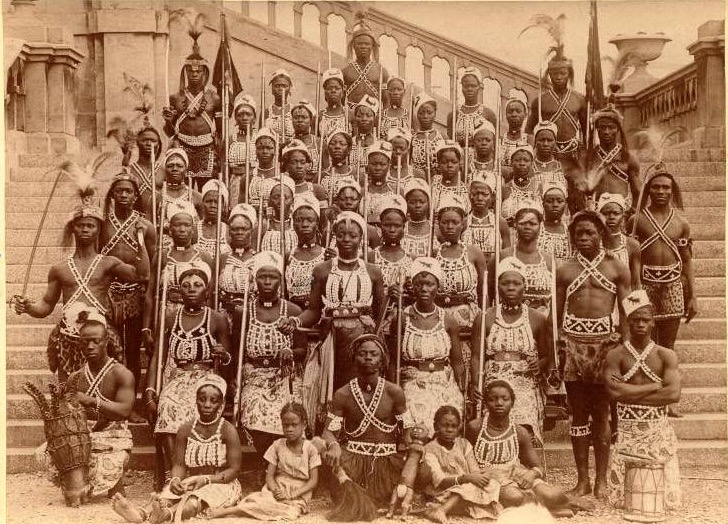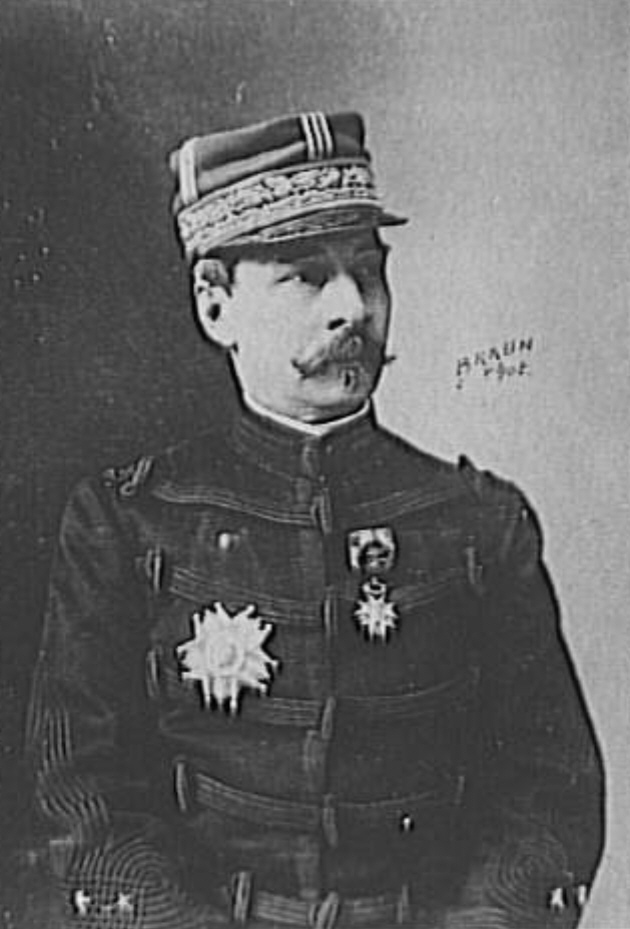He is noted for having led the destruction of one of West Africa’s most powerful pre-colonial states – the Dahomey Kingdom.
Alfred-Amédée Dodds, born in Senegal, was a French military officer of
Though he would be cited from the 20th century by some sources as an example of African leadership, his role in French colonial expansion in West Africa can never be forgotten.
From 1890, he was the commander of French forces in Senegal and from 1892 to 1894, he was in charge of the military takeover of Dahomey, located in what is now southern Benin.

The Dahomey Kingdom was a powerful regional state that controlled large areas and several tribes in pre-colonial West Africa around the 18th and 19th centuries like the Oyo Empire, the Songhai Empire, and the Mali Empire.

At the height of its powers, Dahomey had a large army including the powerful Dahomey Amazons – an all-female military unit that terrorized the enemy.
Built on conquest and slave labour, the Kingdom also had significant international trade with Europeans, a robust economy and a highly organised political system.
In spite of all these, it succumbed to the superior weapons of the French colonial empire in 1894 but not without the heroic resistance demonstrated by the last king of Dahomey – King Behanzin.
Behanzin, who had succeeded the throne in 1889, realized that the Europeans were gradually encroaching on his kingdom, and he sought ways to isolate them. He resisted the French claim to Cotonou, provoking the French invasion and eventual conquest of Dahomey in 1892–94.
Before the conquest, decisive battles were fought at
He was defeated by Dodds, who led the expedition against Behanzin’s Dahomey. Dodds captured the city of Abomey and Behanzin while defeating the Dahomey Amazons in November 1892.
Born on February 6, 1842, in Saint-Louis, Senegal, Dodds’ father was Antoine Henri Dodds, a merchant, and director of the Saint-Louis post office, a quadroon (one-quarter African and three-quarters European) and of Métis descent.
Dodds’ mother was Charlotte de la Chapelle of French and African descent. Dodds trained at the prestigious military academy of Saint-Cyr in 1862 before joining the French marine force.

The Senegalese mulatto was made captain in December 1869 and became a company commander in the Franco-German War of 1870, where sources say that his military prowess was noted at the Blue Division (a French division during the war) and was made Knight of the Legion of Honour.
Dodds was captured at the Battle of Sedan in 1870 but he escaped and returned to combat in the Loire campaign. He returned to West Africa after the war, where he served for the next 20 years, even though he briefly made visits to Indochina (1878 and 1883).
Meanwhile, he served in Senegal from 1871 to 1878, and in Cochinchina (a French colony) from 1878 to 1879. In 1879, he was made battalion leader and he served once more in Senegal before fighting in Casamance (the area of Senegal south of the Gambia) from 1879 to 1883.
As a colonel in 1887, Dodds served in the counter-insurgency warfare in the Fouta Djalon in French Guinea before being appointed superior commander of Dahomey to lead the Second Franco-Dahomean War
His victory at Abomey (1892) was vital to the eventual linkage of French possessions in upper Senegal and the upper Niger region, according to accounts.
Dodds defeated Dahomey but there was a problem. Even though the French attained the surrender of Behanzin in 1894, they did not procure Behanzin’s signature of national surrender or treaty
Thus, following Behanzin’s exile, Dodds was willing to offer the throne to any one of the immediate royals in return for a signature to legalise the establishment of a French protectorate over the Kingdom.
All the Royals, however, refused except Agoli-Agbo, who was Behanzin’s Army Chief of Staff and relative. He agreed to sign the treaty, but instead of being appointed to the throne as the head of a sovereign nation, Dodds made him a “traditional chief.”
Considered to have been the twelfth, and last, ‘King’ of Dahomey, Agoli-Agbo ruled for six years (1894-1900) and was assisted by a French Viceroy
Meanwhile, the French were preparing for direct administration and they succeeded on February 12, 1900. Agoli-Agbo went into exile in Gabon and the Save River and returned in 1918 to live in Abomey as a private citizen.
Dodds, in the meantime, was appointed inspector general of the marine infantry in 1899 and was later given command of the 20th (colonial) army corps.
He went back to Paris in 1904 and served on the










